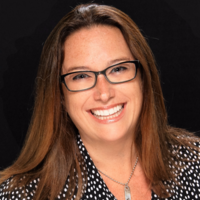“I’m just getting started, so I’ll focus on friends and family for now.”
I can’t count how many times I’ve heard that from new advisors – and I completely understand the instinct.
When you’re launching a business built on relationships, starting with the people who already know and trust you seems natural.
And yes, working with friends and family (F&F) can seem like a natural starting point. You’ve already earned their trust, and they know how passionate you are about travel. But while they may seem like the perfect place to start, working with them often comes with hidden hurdles.
As I mentioned in my June 2025 Sphere column, one of the most important steps in building a client relationship is the Discovery Call. This is where you establish your professionalism, set expectations, and communicate that your time – and expertise – have value. You also ask personal questions about preferences, habits, and travel goals. That’s all much easier with a potential new client than a family member who insists, “Hey, it’s me! You already know what I like – just find me a good deal.”
Speaking of deals … once you’re in the industry, your F&F may assume your new career comes with insider discounts and freebies. Many of them will be tire-kickers – curious about what you can find, but not necessarily serious about booking. You might find yourself chasing vague ideas (“We’re thinking Italy … or maybe Indonesia?”) only to realize they were never planning to commit.
This is also where setting expectations around your fees becomes important. Even with friends or family, it’s crucial to establish that your services have value and that your time – and expertise – come with a professional fee.
Another common challenge when working with friends and family is maintaining boundaries. The Discovery Call is effective because it creates space for candid, detailed conversations about a client’s preferences and needs – something that can be more difficult when you know the client personally. A neighbour may hesitate to mention a fear of flying, or a cousin might avoid sharing that she and her partner prefer separate beds. Yet those details are often essential to crafting the right trip.
Even outside of planning, the overlap between personal and professional relationships can create tension. A problem with a booking, for example, may leave you managing not only a dissatisfied client but also a potentially awkward family dynamic.
That’s not to say you should never work with friends or family. Just make sure you set clear expectations from the start: outline your process, define your boundaries, and treat the engagement as you would with any other client.
But for sustainable growth and fewer awkward moments, look beyond your immediate circle. Professional associations, community groups, alumni networks and social clubs are all excellent places to find clients who value your time, your expertise, and your role as their trusted travel advisor.


